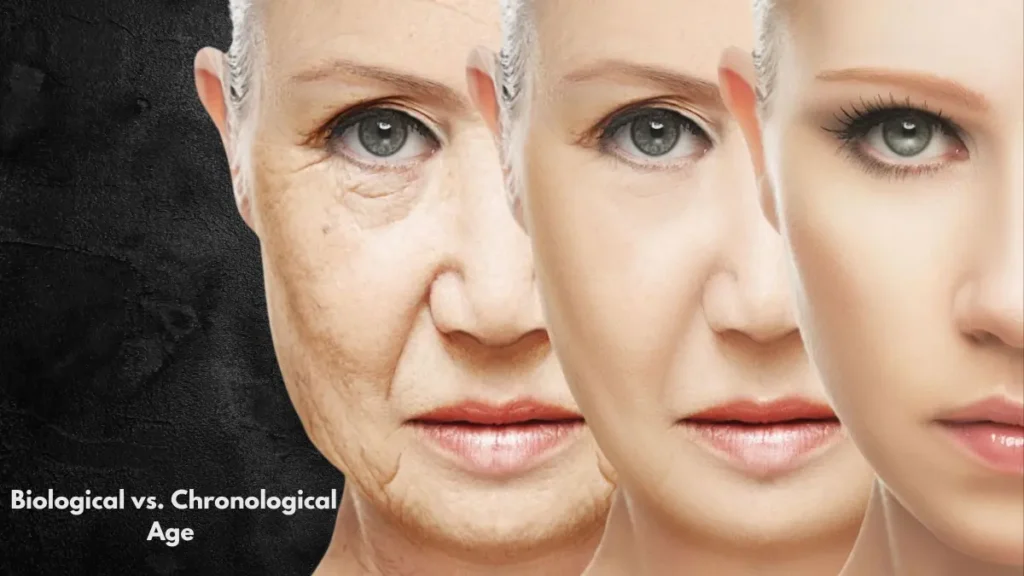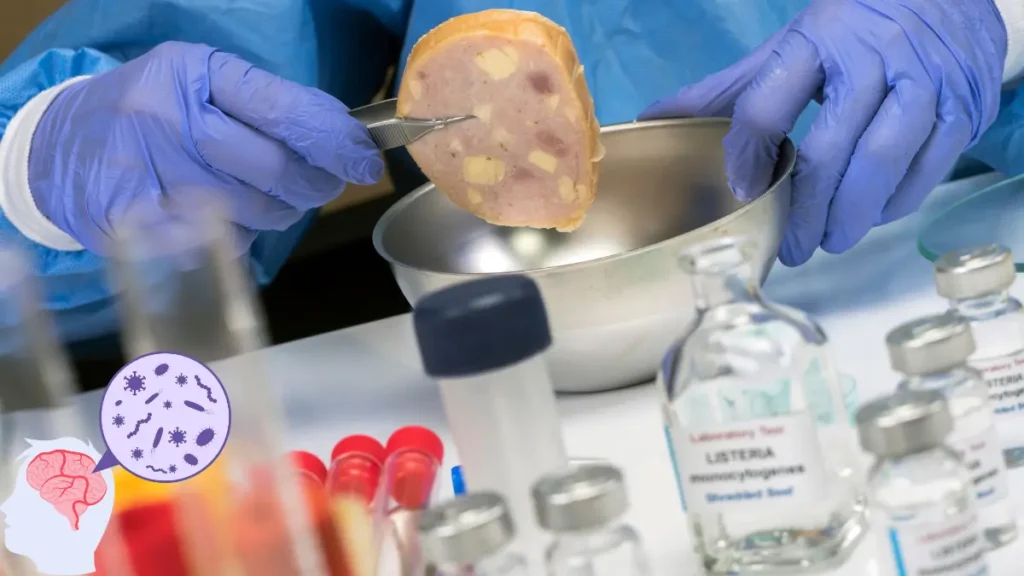
Table of Contents
ToggleIntroduction
Aging is a complex process that involves both biological age and chronological age.
- Biological Age: Reflects the health and functional state of your body, indicating how well your systems are performing.
- Chronological Age: Simply measures the number of years you have been alive.
Understanding the difference between these two types of age is crucial for promoting healthy aging. Lifestyle factors significantly influence biological age, making choices in diet, exercise, and social connections essential for longevity.
This article presents 10 surprising facts about biological and chronological age. These insights can empower you to make informed decisions that may help you live a longer and healthier life.
1. Biological Age Reflects Body State, Not Years Lived
Biological age is a measure of your body’s health and how well it’s aging, while chronological age is just the number of years you’ve been alive.
Here’s how they differ:
- Biological Age: Affected by genetics, lifestyle choices, and environment; shows how your body works compared to its potential.
- Chronological Age: A set number based on your birth date; doesn’t consider individual health differences.
Knowing these differences helps you take action to improve your biological age and support healthier aging.
2. The Surprising Role of Genetics and Lifestyle in Aging
Genetics play a noteworthy role in aging, contributing approximately 15-25% to your biological age. This influence results from inherited traits that can dictate cellular repair and longevity mechanisms.
Key lifestyle choices significantly impact your biological age, often overshadowing genetic predispositions. Consider these factors:
- Diet: A balanced diet rich in antioxidants can combat oxidative stress.
- Physical Activity: Regular exercise enhances cardiovascular health and reduces chronic disease risk.
- Sleep Quality: Sufficient rest supports cellular repair processes.
Understanding the interplay of genetics and lifestyle empowers you to make informed decisions for healthier aging.
Also Read
Scientists Develop 3D-Printed Active Fabric: A Game-Changer for Soft Robotics
3. Biomarkers: The Key Indicators of Biological Age
Biomarkers serve as essential tools for measuring aging, providing insights into your biological age. Common types of biomarkers include:
- Blood Pressure: Elevated levels can indicate cardiovascular risk and overall health decline.
- DNA Methylation: Changes in DNA methylation patterns reflect cellular aging and genetic stability.
These indicators assess physical health and reveal biological processes contributing to aging, highlighting how diet and lifestyle choices impact cellular health. Understanding these biomarkers allows for proactive steps toward healthier aging.
4. Telomeres, Epigenetic Clocks, and the Mystery of Aging
Telomeres: The Guardians of Our Chromosomes
Telomeres are protective caps on chromosome ends, crucial for cellular aging. Each cell division shortens them, leading to aging and cell death. However, telomere length is a biological marker for cellular health and longevity; longer telomeres may indicate better health and potential longevity.
Epigenetic Clocks: Unraveling the Secrets of Biological Age
On another front, we have epigenetic clocks. These clever tools use DNA methylation patterns to estimate our biological age. What’s fascinating is that these patterns aren’t fixed; they change based on environmental factors and lifestyle choices.
This means that our epigenetic clock can provide insights into how we’re aging. It reflects not just the passage of time but also the impact of our choices on our aging process.
Current research is focused on refining these epigenetic clocks. The goal? To make even more accurate predictions about health outcomes and longevity potential.
Beyond Chronological Years: The Complexity of Aging
Understanding mechanisms like telomeres and epigenetic clocks sheds light on the complexity of aging. It’s not just about counting years; there’s so much more happening at a cellular level.
These discoveries challenge traditional notions of aging and open up new possibilities for interventions that promote healthy aging.
5. The Impact of Chronic Conditions on Your Biological Age
Chronic conditions can significantly influence your biological age. Research indicates that diseases such as:
- Cardiovascular diseases
- Diabetes
- Chronic respiratory conditions
accelerate biological aging. These health issues contribute to cellular damage, inflammation, and oxidative stress, all of which play critical roles in the aging process.
For instance, individuals with diabetes often exhibit higher levels of advanced glycation end-products (AGEs), which are harmful compounds that promote inflammation and cellular aging. Managing these chronic conditions through lifestyle changes can help mitigate their effects on biological age, promoting healthier aging and longevity.
Also Read
Listeria Outbreak Linked to Deli Meat Claims 2 Lives, Hospitalizes 28 Across 12 States
6. The Power of Social Factors in Aging Well
Social connections play a significant role in determining your biological age. Engaging with family, friends, and community can lead to numerous health benefits, including:
- Lower Stress Levels: Positive relationships help reduce stress, which is linked to accelerated aging.
- Enhanced Mental Health: Strong social networks mitigate feelings of loneliness and depression, promoting a healthier mindset.
On the flip side, poverty and adverse environmental conditions can severely impact longevity. Individuals facing economic hardships often encounter limited access to healthcare and nutritious food. Furthermore, polluted environments can increase the risk of chronic diseases, exacerbating biological aging.
7. Simple Lifestyle Changes to Improve Your Biological Age
Adopting specific lifestyle changes can significantly reduce your biological age. Consider the following modifications:
- Balanced Diet: Incorporate plenty of fruits, vegetables, whole grains, and lean proteins. Limit processed foods and sugars.
- Regular Exercise: Engage in physical activities such as aerobic exercise, strength training, and flexibility exercises. Aim for at least 150 minutes of moderate-intensity activity weekly.
Experts like Dr. Matt Kaeberlein emphasize that consistent lifestyle choices yield profound benefits for cellular health and longevity. Making these adjustments can lead to a healthier and younger biological age, enhancing your overall well-being.
8. Innovations in Aging Research: A Glimpse into the Future
The longevity movement is gaining traction, driven by significant advancements in aging research. Key innovations include:
- Biological Age Estimation Tools: The NOVOS app utilizes surveys to provide insight into your biological age.
- AI and Biomarkers: Researchers are exploring artificial intelligence to analyze biomarkers, enhancing our understanding of aging processes.
These developments not only aim to extend lifespan but also focus on improving healthspan—providing individuals with a clearer pathway toward healthier aging. As research evolves, the potential for personalized longevity strategies becomes increasingly promising.






